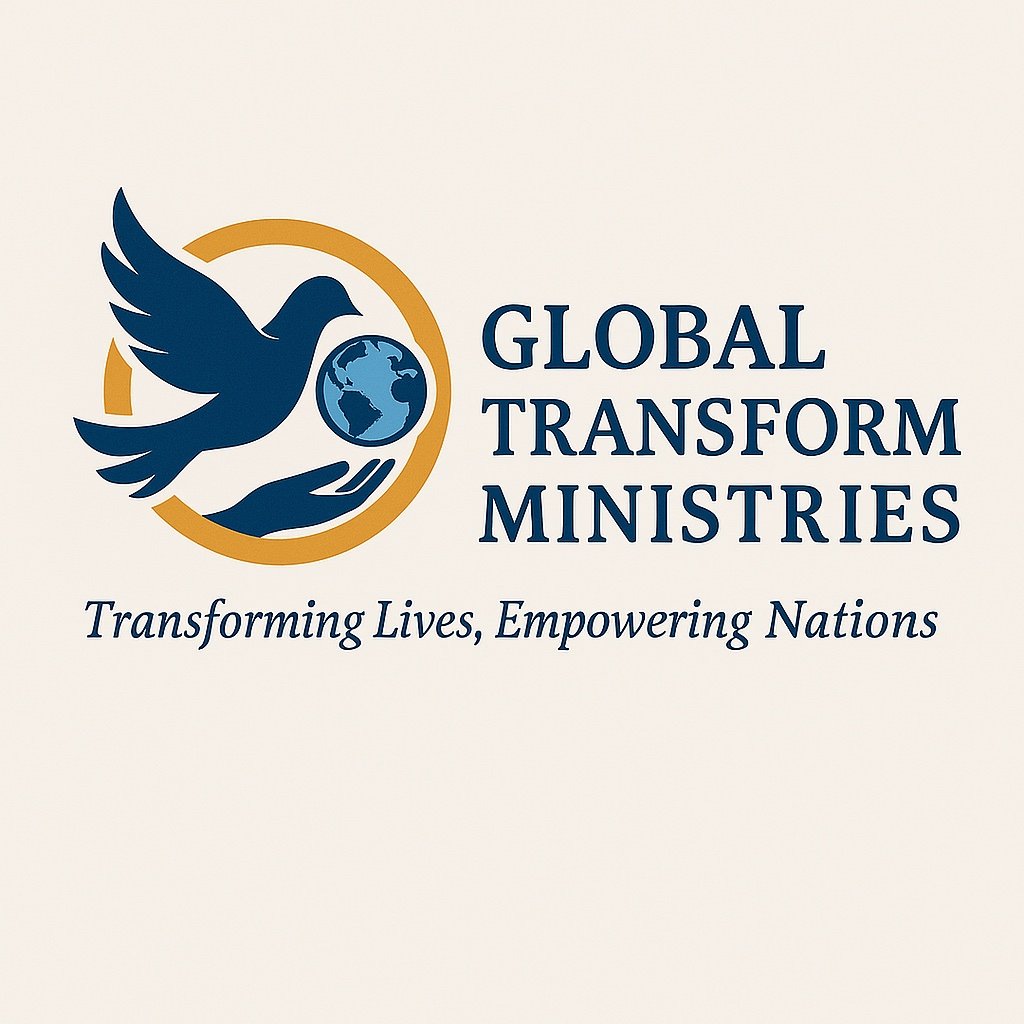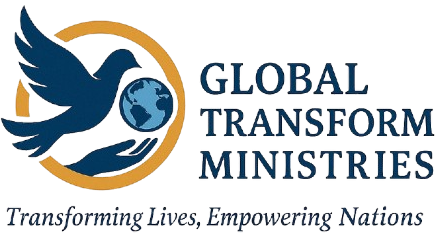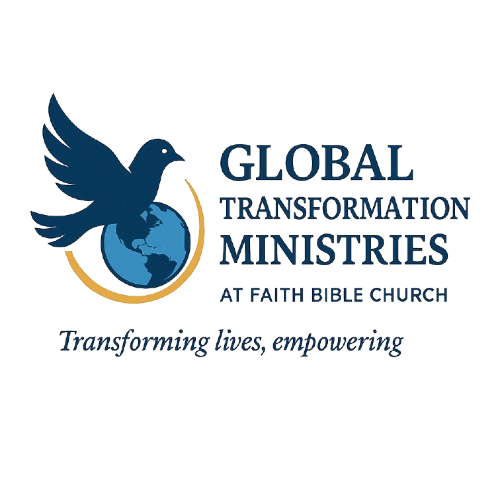
- Church Stories
- Daily news
Faith-Driven Finance: Budgeting, Investing, and Stewardship
Faith-Driven Finance: Budgeting, Investing, and Stewardship”
| Heading Level | Title / Subheading |
|---|---|
| H1 | Faith-Driven Finance: Budgeting, Investing, and Stewardship |
| H2 | Introduction: The Intersection of Faith and Finances |
| H2 | The Biblical Foundation of Financial Stewardship |
| H3 | God as the Owner, Humanity as Stewards |
| H3 | Jesus’ Teachings on Wealth and Responsibility |
| H3 | Old and New Testament Models of Stewardship |
| H2 | Faith-Driven Budgeting: Living Within God’s Provision |
| H3 | Why Budgeting is a Spiritual Discipline |
| H3 | Biblical Wisdom for Financial Planning |
| H4 | Tithing and Firstfruits Giving |
| H4 | Needs vs. Wants: Contentment in Christ |
| H4 | Avoiding the Bondage of Debt |
| H4 | Incorporating Generosity into Budgets |
| H2 | Faith-Driven Investing: Multiplying God’s Resources |
| H3 | The Parable of the Talents: A Kingdom Investment Model |
| H3 | Principles of Wise and Ethical Investing |
| H4 | Diligence and Due Diligence |
| H4 | Diversification as Biblical Prudence |
| H4 | Avoiding Exploitative and Unethical Investments |
| H3 | Modern Faith-Based Investment Options |
| H4 | Biblically Responsible Investing (BRI) |
| H4 | Christian Mutual Funds and ETFs |
| H2 | Stewardship Beyond Money: Time, Talent, and Treasure |
| H3 | Time Management as Sacred Stewardship |
| H3 | Stewardship of Skills and Spiritual Gifts |
| H3 | Treasure and Eternal Priorities |
| H2 | Challenges in Practicing Faith-Driven Finance |
| H3 | Materialism and Consumer Culture |
| H3 | Balancing Faith with Financial Realities |
| H3 | Overcoming Fear and Trusting God’s Provision |
| H2 | Case Studies of Faith-Driven Financial Living |
| H3 | Historical Examples from Christian Leaders |
| H3 | Modern-Day Christian Entrepreneurs |
| H2 | The Eternal Perspective on Wealth |
| H3 | Storing Up Treasures in Heaven |
| H3 | Financial Practices as Worship |
| H2 | FAQs on Faith-Driven Finance |
| H2 | Conclusion: A Call to Kingdom Stewardship |
Faith-Driven Finance: Budgeting, Investing, and Stewardship
Faith-Driven Finance: Budgeting, Investing, and Stewardship
Introduction: The Intersection of Faith and Finances
In a world where financial systems often prioritize profit over principle, Christians are called to a higher standard—living as stewards of God’s resources. For over five decades, I have studied, taught, and practiced the integration of biblical faith with financial stewardship at Harvard University and through Global Transformation Ministries (GTM). Faith-driven finance is not merely about managing money; it is about aligning our financial lives with God’s kingdom purposes.
This article explores three vital aspects of Christian financial living—budgeting, investing, and stewardship—grounded in Scripture, enriched by historical wisdom, and applied in modern contexts.
The Biblical Foundation of Financial Stewardship
God as the Owner, Humanity as Stewards
The Bible establishes that everything belongs to God: “The earth is the Lord’s, and everything in it” (Psalm 24:1). Believers are managers, not owners. This perspective transforms financial decisions from self-centered to kingdom-centered.
Jesus’ Teachings on Wealth and Responsibility
Jesus frequently spoke about money, emphasizing accountability. In Luke 16:10-11, He taught that faithfulness in small financial matters is a test for greater spiritual responsibilities. Wealth, therefore, is both a resource and a test of discipleship.
Old and New Testament Models of Stewardship
From Joseph’s wise grain storage in Egypt (Genesis 41) to the early church’s generosity in Acts 2, Scripture provides timeless models of resource management rooted in trust, discipline, and generosity.
Faith-Driven Budgeting: Living Within God’s Provision
Why Budgeting is a Spiritual Discipline
Budgeting is often seen as a mundane task, but in reality, it is a discipline of faith and stewardship. Proverbs 27:23 commands believers to “know well the condition of your flocks.” Today, that translates to intentional financial planning.
Biblical Wisdom for Financial Planning
Tithing and Firstfruits Giving
God calls His people to put Him first in their finances: “Bring the whole tithe into the storehouse” (Malachi 3:10). Budgeting must begin with worship through giving.
Needs vs. Wants: Contentment in Christ
Paul reminds us: “If we have food and clothing, we will be content with that” (1 Timothy 6:8). Budgeting helps us distinguish needs from luxuries.
Avoiding the Bondage of Debt
Debt enslaves: “The borrower is slave to the lender” (Proverbs 22:7). Faith-driven budgeting prioritizes living within means and breaking free from debt cycles.
Incorporating Generosity into Budgets
Generosity must be intentional, not leftover. As 2 Corinthians 9:7 teaches, God loves a cheerful giver. A faith-driven budget plans for generosity.
💡 Ministries like Crown Financial and Dave Ramsey Solutions offer resources to help believers apply these principles.
Faith-Driven Investing: Multiplying God’s Resources
The Parable of the Talents: A Kingdom Investment Model
In Matthew 25:14-30, Jesus commends the servants who multiplied their master’s money. Investing, when done ethically, honors God by growing resources for kingdom impact.
Principles of Wise and Ethical Investing
Diligence and Due Diligence
“The plans of the diligent lead surely to abundance” (Proverbs 21:5). Wise investors research carefully before committing.
Diversification as Biblical Prudence
Ecclesiastes 11:2 advises spreading investments—modern application: diversify portfolios.
Avoiding Exploitative and Unethical Investments
Faith-driven investing avoids industries that harm human dignity (pornography, abortion, gambling, exploitative labor).
Modern Faith-Based Investment Options
Biblically Responsible Investing (BRI)
BRI screens out companies that conflict with Christian values. Eventide Funds exemplify this.
Christian Mutual Funds and ETFs
Options like Praxis Mutual Funds offer believers a way to grow wealth while staying true to their faith
Stewardship Beyond Money: Time, Talent, and Treasure
Time Management as Sacred Stewardship
Ephesians 5:16 instructs us to “redeem the time, because the days are evil.” Time, like money, is a finite resource entrusted to us by God. Faith-driven finance cannot be separated from how we steward our daily hours and life seasons. A Christian budget should include not only financial planning but also time planning—ensuring rest, worship, family, and service are prioritized.
Stewardship of Skills and Spiritual Gifts
Every believer has God-given talents. 1 Peter 4:10 calls us to use these gifts in serving others. Financial stewardship includes investing in education, skill-building, and training to maximize God’s gifts for kingdom purposes. For instance, a Christian doctor who uses her profession for mission work is practicing stewardship not just of money but of calling.
Treasure and Eternal Priorities
Jesus’ words in Matthew 6:19–21 remind us: “Do not store up for yourselves treasures on earth… but store up for yourselves treasures in heaven.” Faith-driven finance constantly asks: Am I using my treasure for eternal impact, or merely for temporal comfort?
Challenges in Practicing Faith-Driven Finance
Materialism and Consumer Culture
We live in a culture of excess and instant gratification. Advertising pressures us to believe we need more to be happy. Yet Scripture warns: “Life does not consist in an abundance of possessions” (Luke 12:15). Overcoming consumerism requires a renewed mind (Romans 12:2).
Balancing Faith with Financial Realities
Some believers assume faith means ignoring practical wisdom. Yet Joseph in Genesis 41 both trusted God and carefully managed resources. Faith-driven finance requires a balance: spiritual trust plus practical planning.
Overcoming Fear and Trusting God’s Provision
Financial fear—whether fear of poverty or fear of loss—cripples many. But Matthew 6:31–33 reassures us: if we seek first God’s kingdom, our needs will be met. Faith-driven stewardship rests in God’s faithful provision.
Case Studies of Faith-Driven Financial Living
Historical Examples from Christian Leaders
- John Wesley (1703–1791): Taught, “Earn all you can, save all you can, give all you can.” He lived modestly, gave generously, and left a legacy of stewardship.
- George Müller (1805–1898): Founder of orphanages in England, Müller trusted God for provision without asking for funds directly—over $7.5 million (today’s value) flowed through his ministry by faith.
Modern-Day Christian Entrepreneurs
- David Green, founder of Hobby Lobby: Applies biblical stewardship by tithing profits, closing stores on Sundays, and funding global missions.
- Truett Cathy, founder of Chick-fil-A: Built a business empire while prioritizing Sabbath rest and Christian ethics.
These examples prove that faith and finance are not in conflict—they can thrive together when anchored in stewardship.
The Eternal Perspective on Wealth
Storing Up Treasures in Heaven
Christians are called to live for eternity, not for temporary wealth. 1 Timothy 6:17–19 urges the rich not to be arrogant but “to be rich in good deeds… storing up treasure as a firm foundation for the coming age.”
Financial Practices as Worship
When believers tithe, invest ethically, and steward resources, they are engaging in acts of worship. Romans 12:1 reminds us that presenting our whole lives—including finances—as a living sacrifice is holy and pleasing to God.
FAQs on Faith-Driven Finance
Q1: Is it wrong for Christians to be wealthy?
No. Scripture does not condemn wealth but warns against the love of money (1 Timothy 6:10). Wealth becomes a blessing when used for God’s purposes.
Q2: How should Christians approach debt?
Debt enslaves (Proverbs 22:7). While not inherently sinful, Christians are called to avoid unnecessary debt and prioritize repayment to live free.
Q3: What’s the difference between secular and faith-driven investing?
Secular investing seeks only profit, while faith-driven investing integrates biblical ethics and ensures money aligns with Christian values.
Q4: Should Christians tithe on gross or net income?
This depends on conviction. Some give from gross as a “firstfruits” principle; others tithe on net. The heart of the matter is faithful, cheerful giving (2 Corinthians 9:7).
Q5: Can budgeting restrict generosity?
On the contrary, budgeting empowers generosity. By planning for giving, believers avoid only offering “leftovers.”
Q6: What role do ministries play in financial discipleship?
Organizations like Global Transformation Ministries, Crown Financial, and Eventide Funds provide resources, training, and tools that equip believers to steward God’s resources well.
Conclusion: A Call to Kingdom Stewardship
Faith-driven finance is more than financial management—it is discipleship in action. By budgeting wisely, investing ethically, and stewarding time, talent, and treasure for God’s kingdom, believers demonstrate to the world that Christ is Lord of every area of life.
At Global Transformation Ministries, we believe that financial transformation is part of spiritual transformation. When Christians live out stewardship, they become agents of change—advancing the kingdom, blessing communities, and leaving eternal impact.
As Jesus taught: “Where your treasure is, there your heart will be also” (Matthew 6:21). May we steward our resources so that our hearts—and our finances—are always aligned with God’s eternal purposes.

Welcome to Global Transformation Ministries (GTM)—where lives are restored, communities are lifted, and destinies are realigned through faith, prayer, and action in Montgomery County, Maryland and beyond
- 240-374-1814
- hello@joingtmmd.org
- Global Transformation Ministries 1645 Yale Place, Rockville, MD 20850

